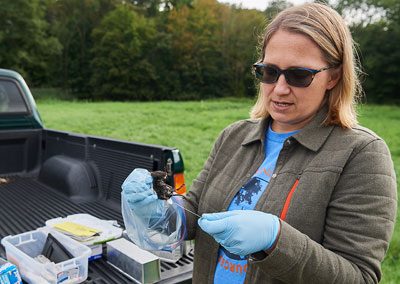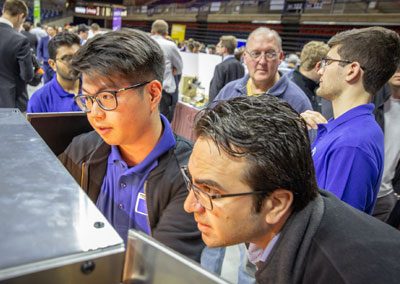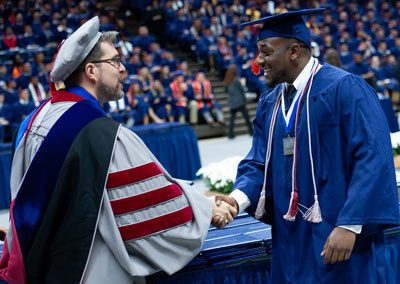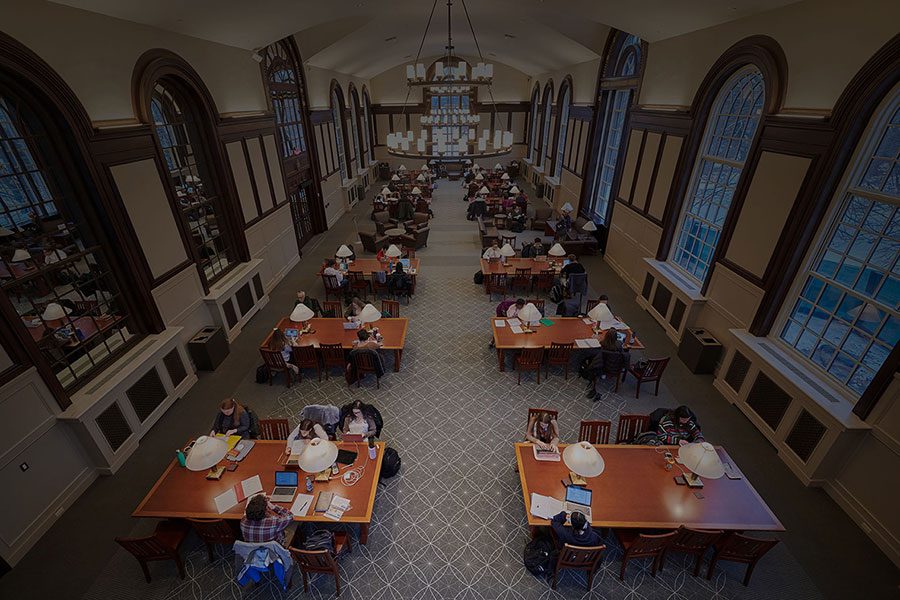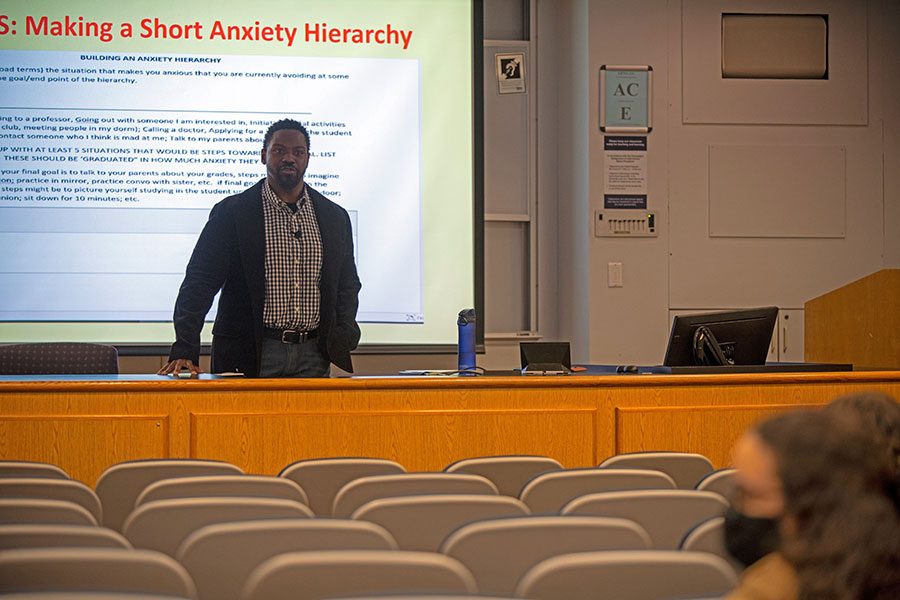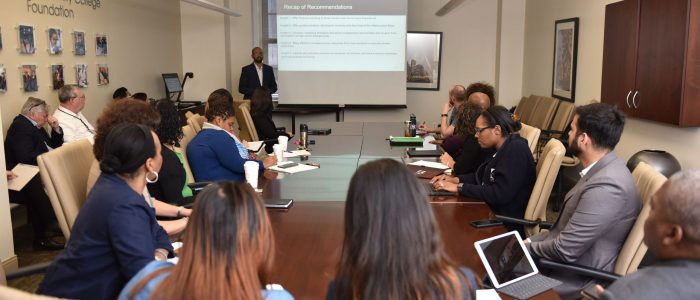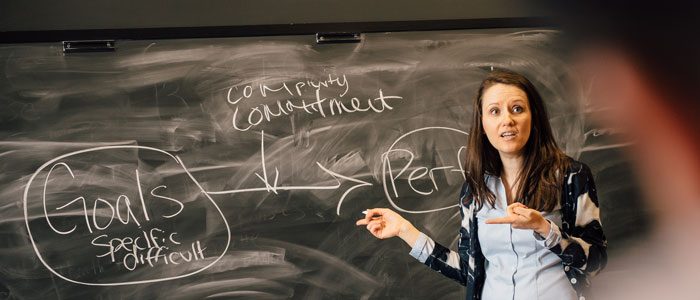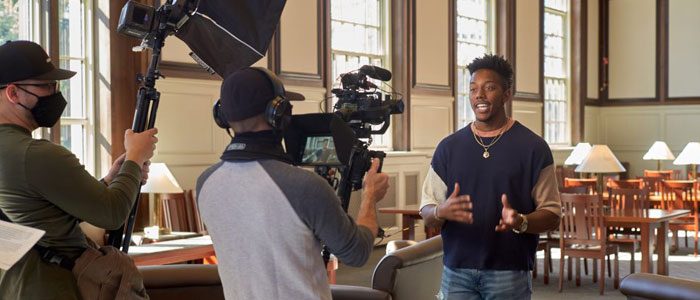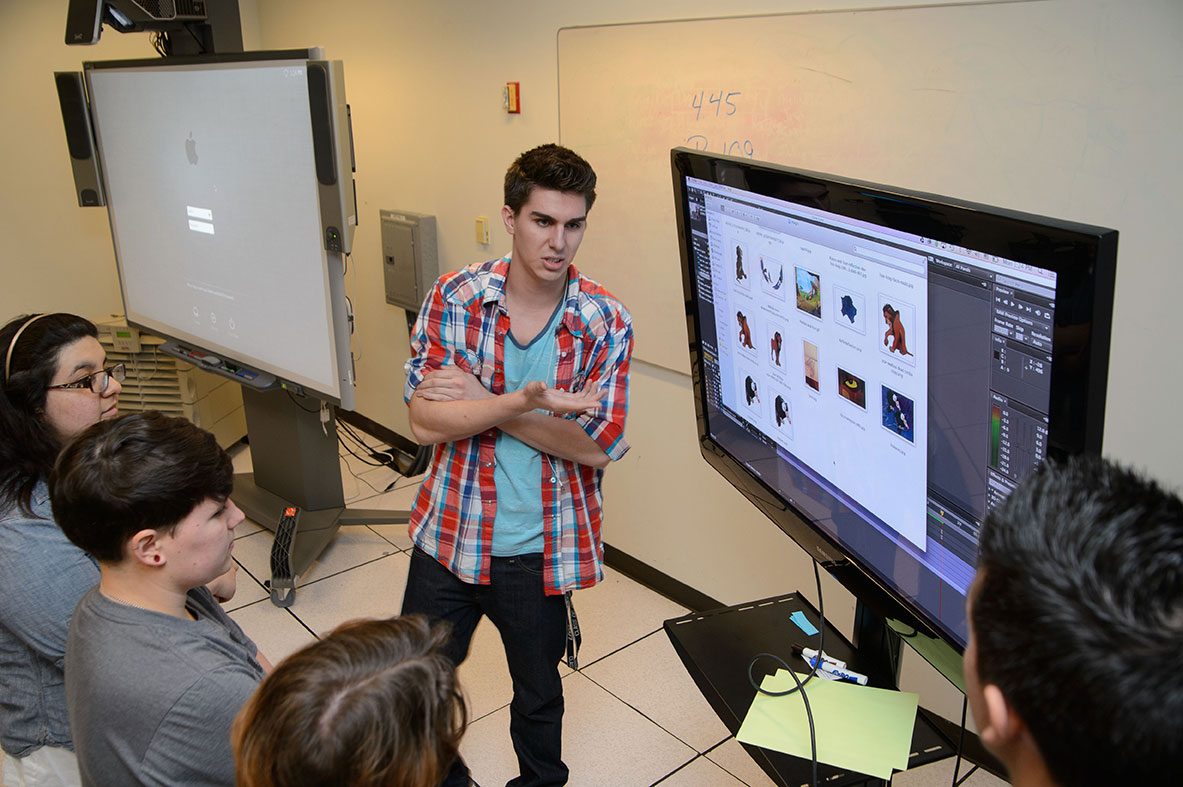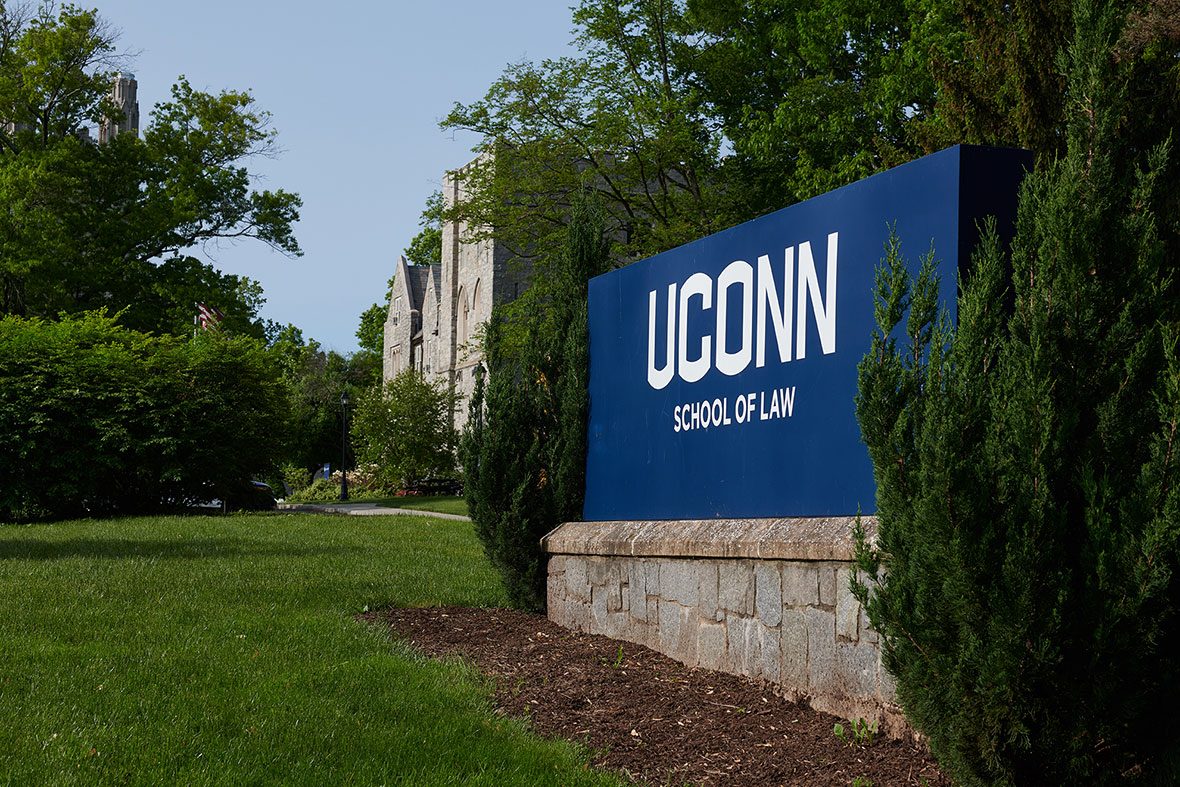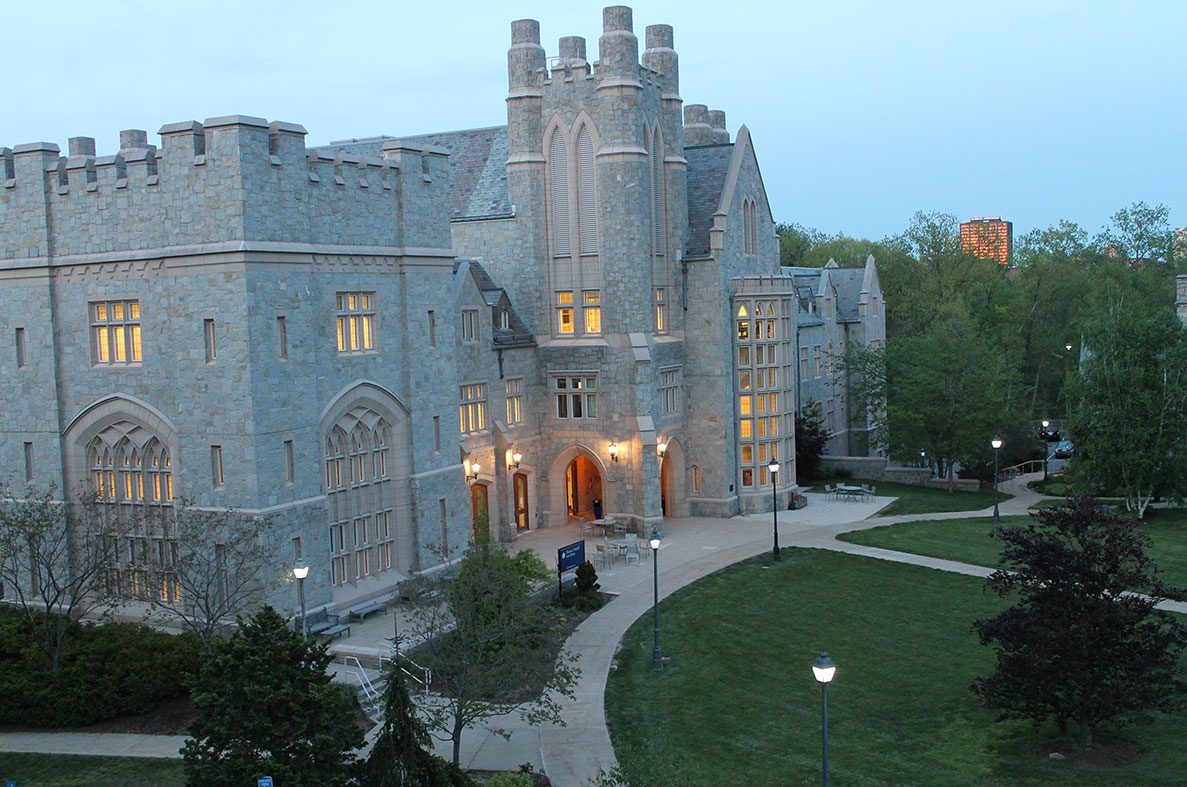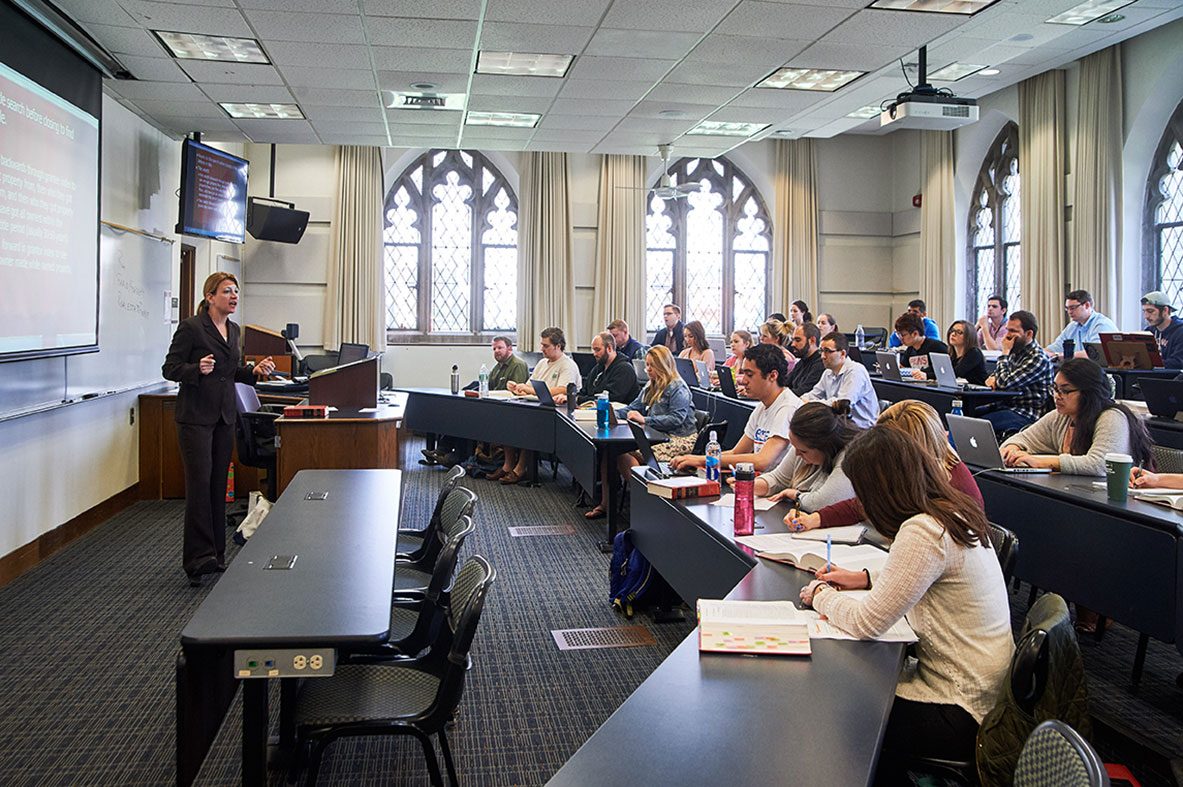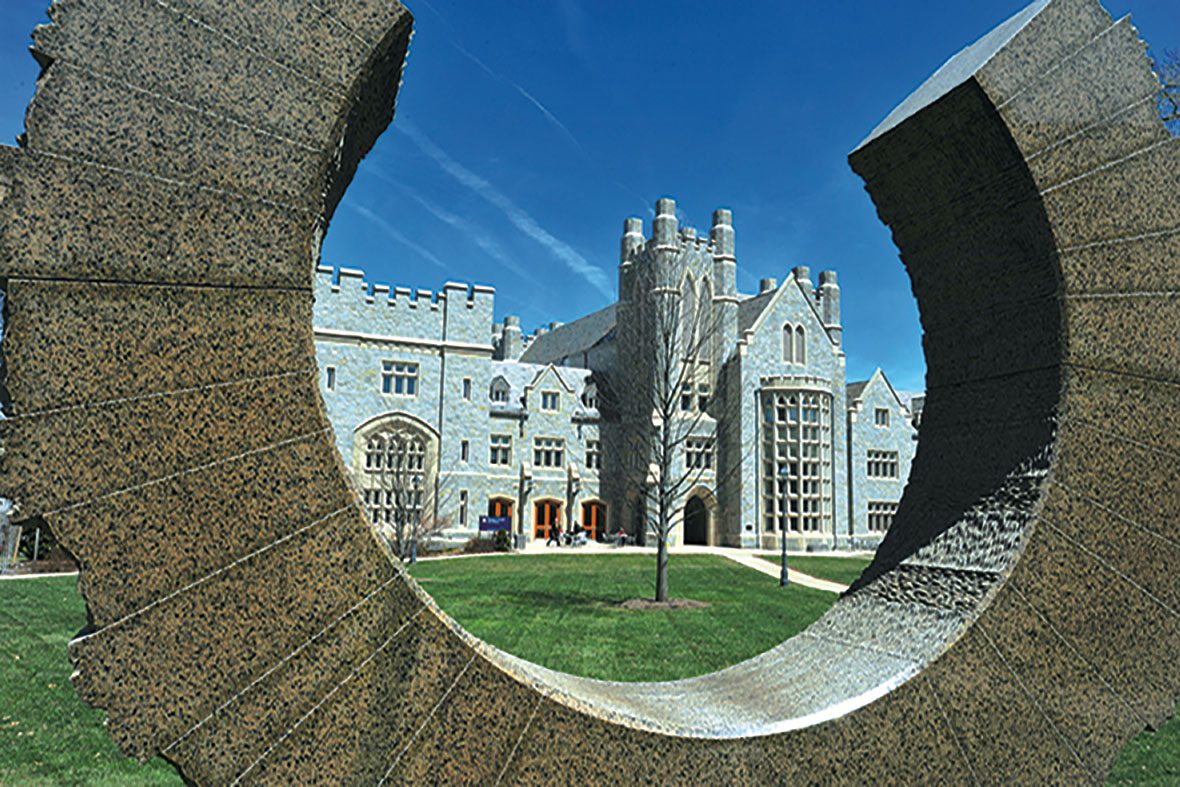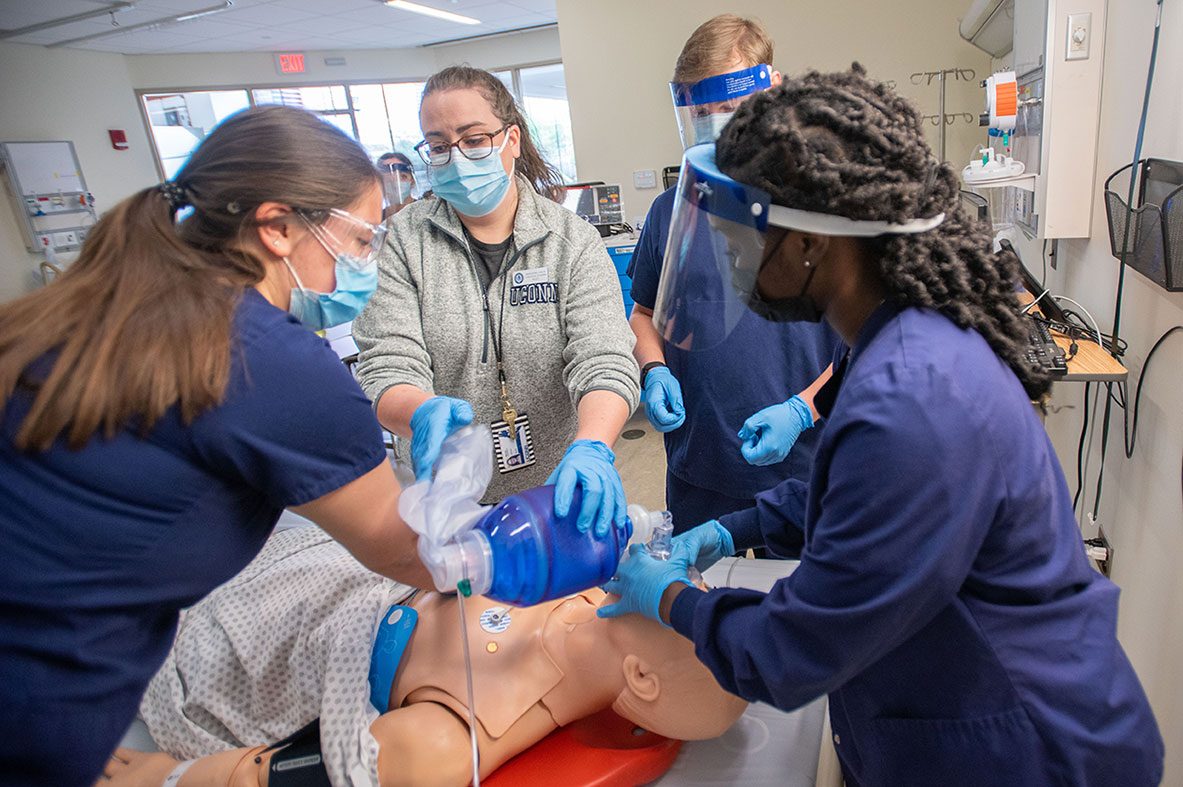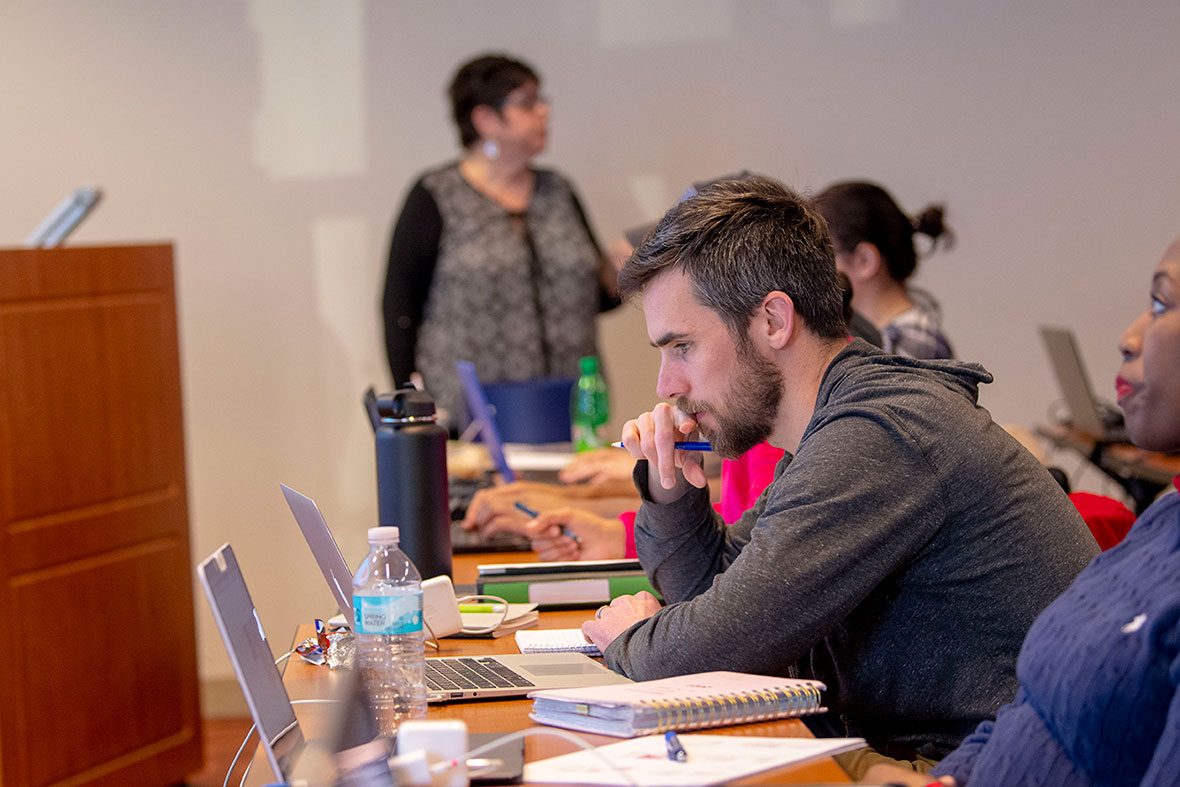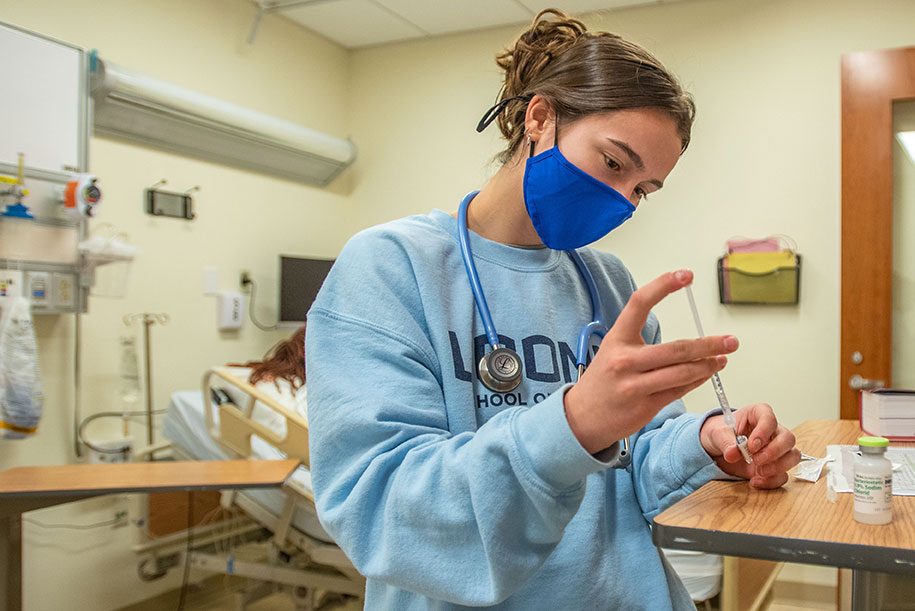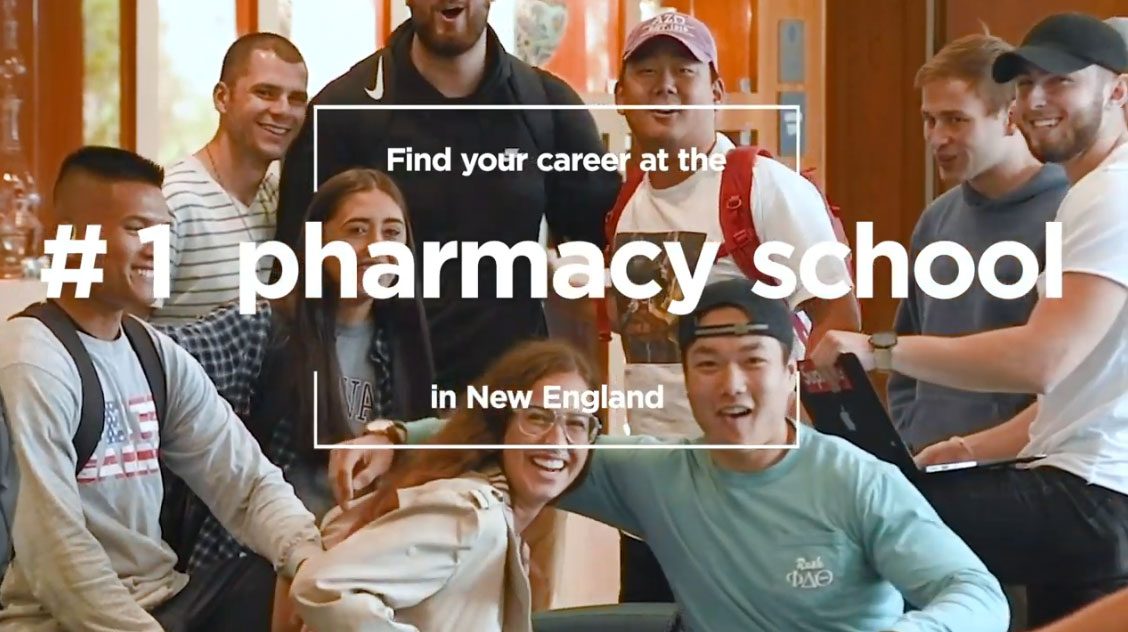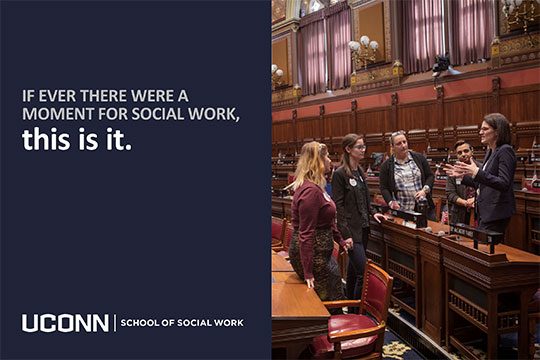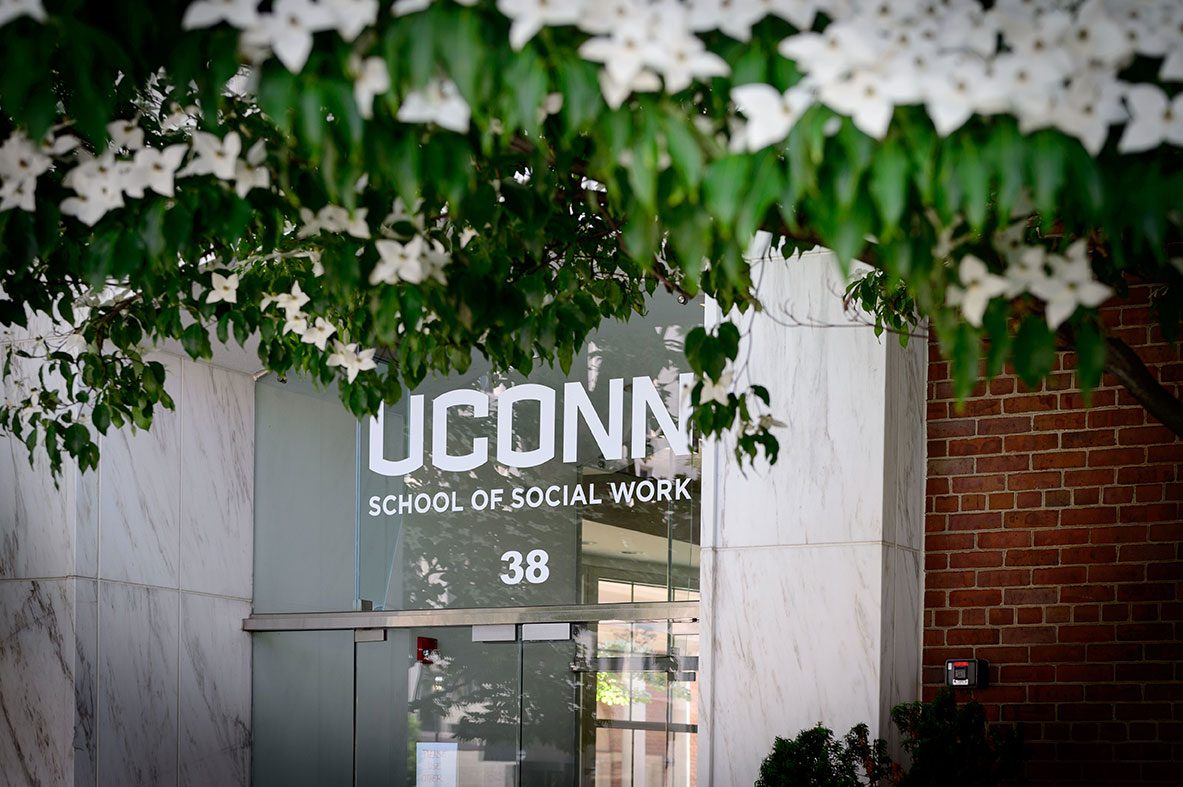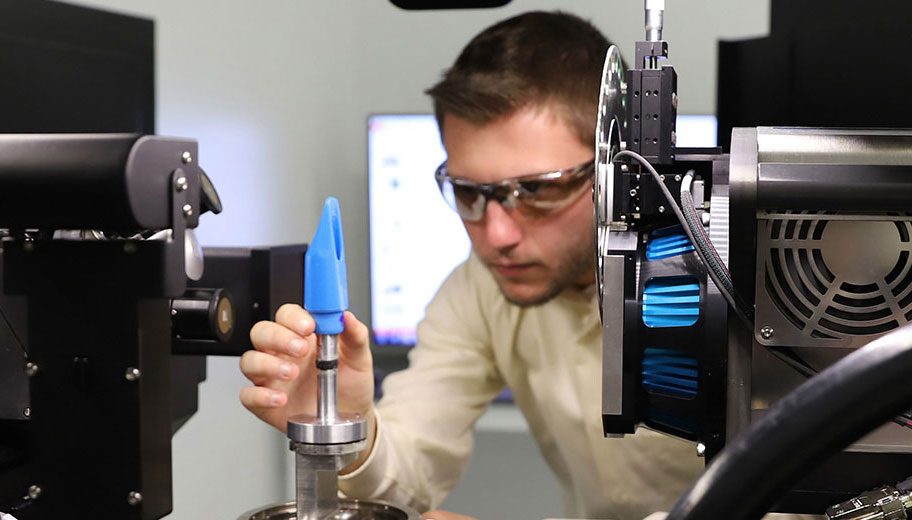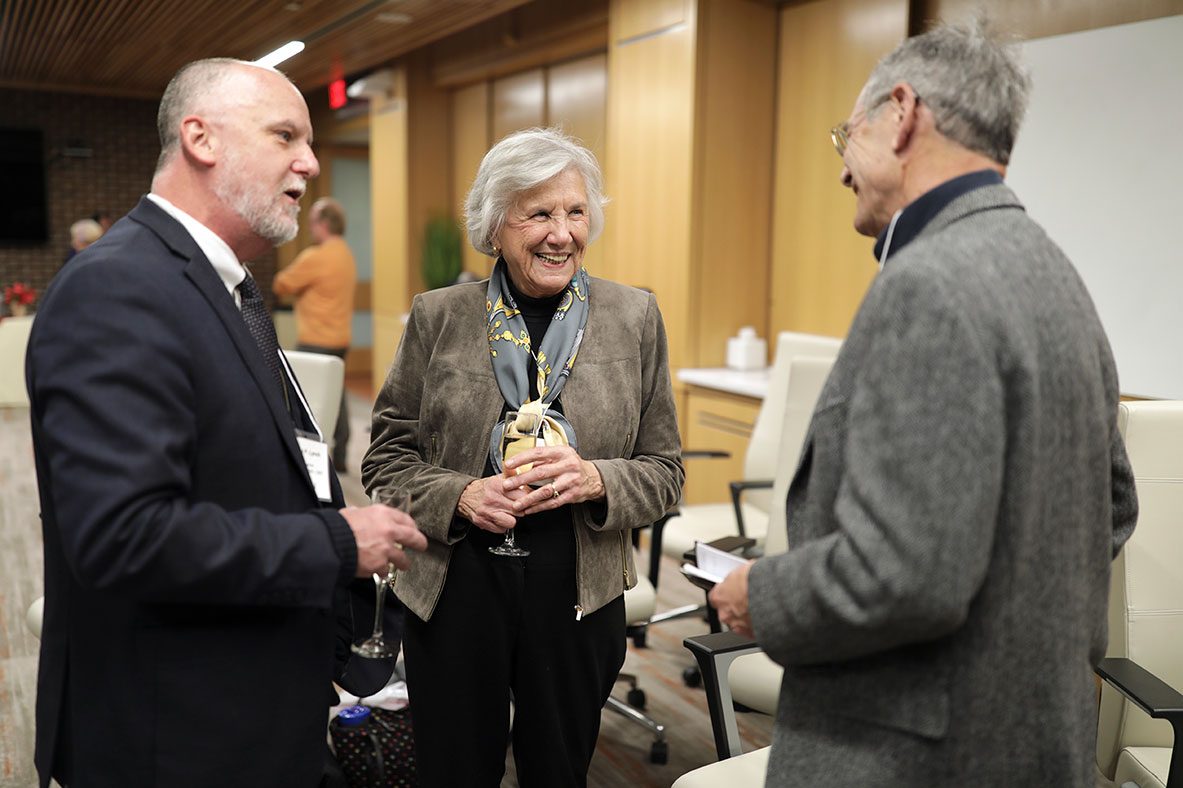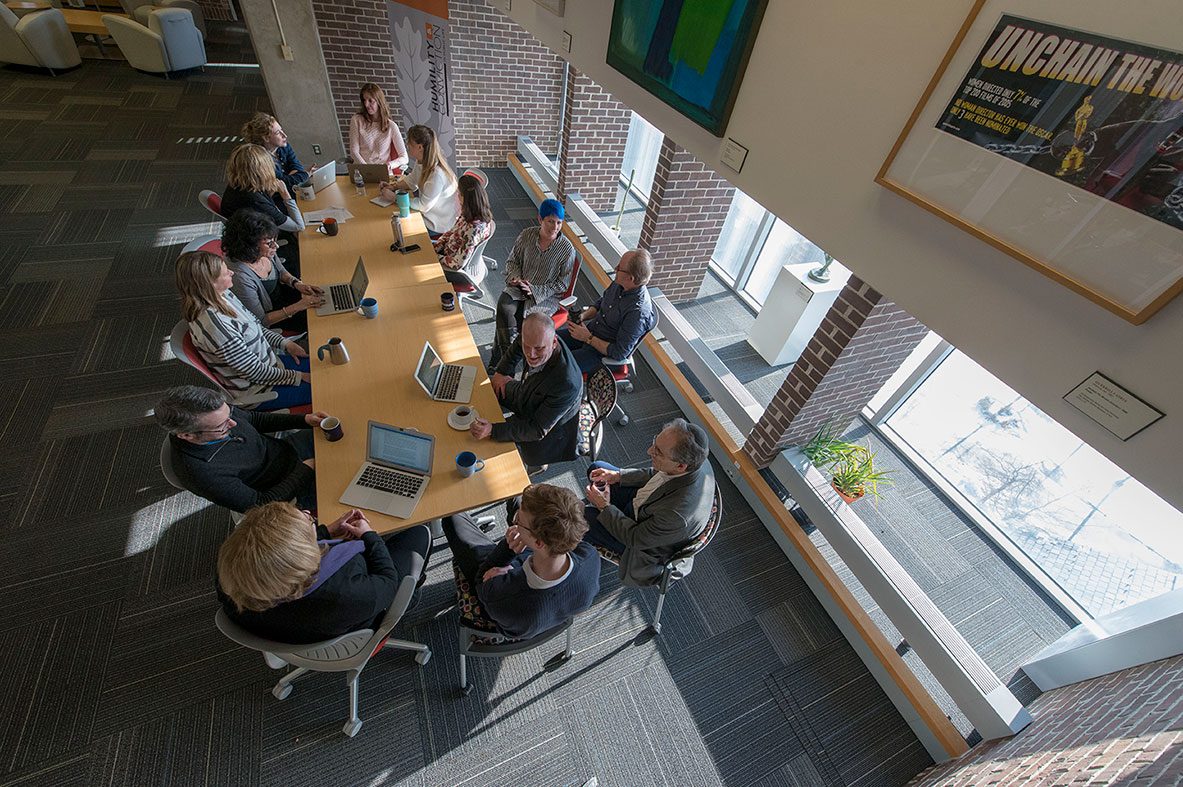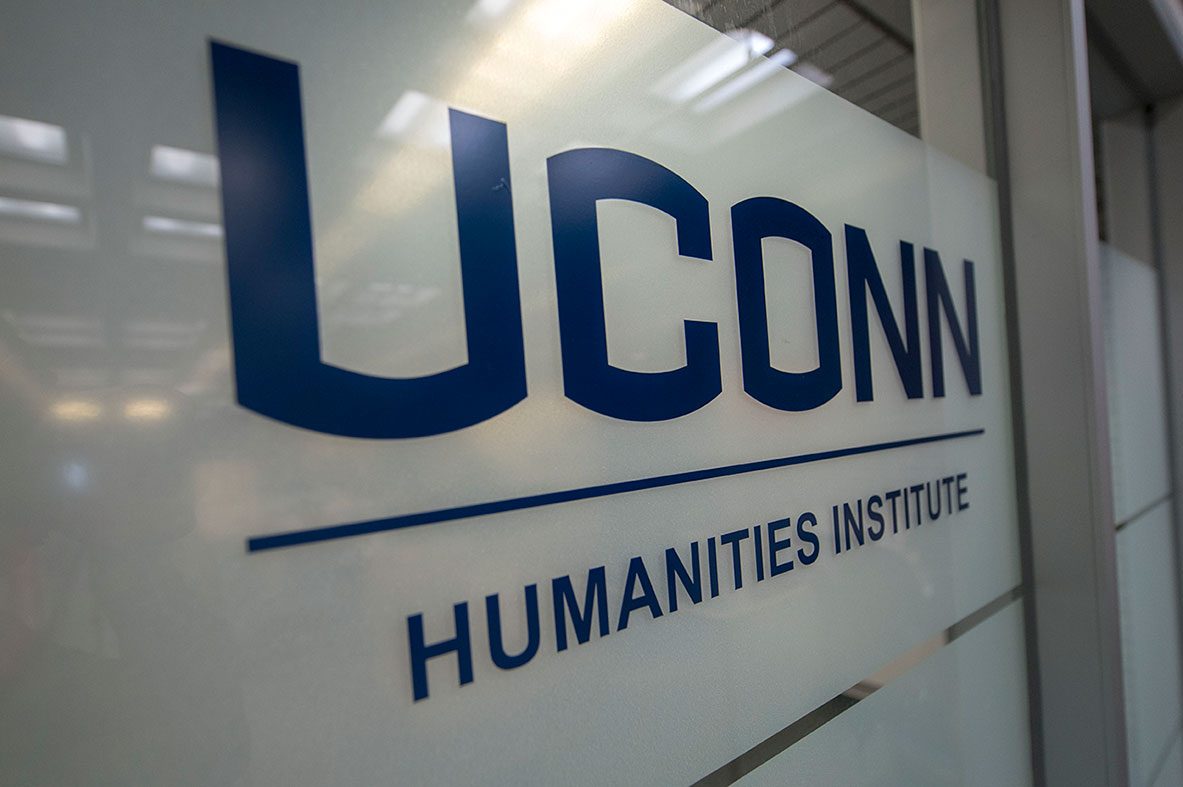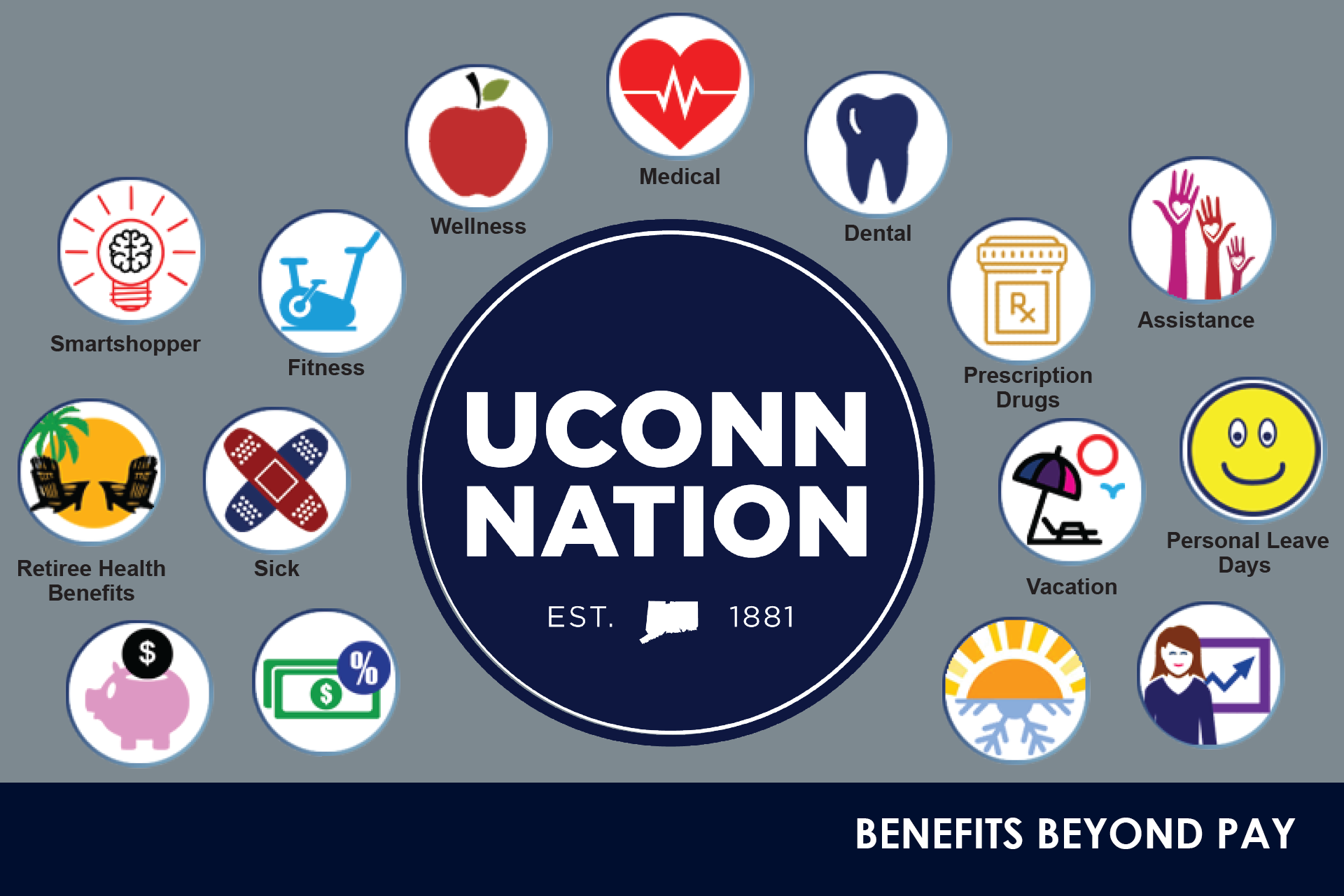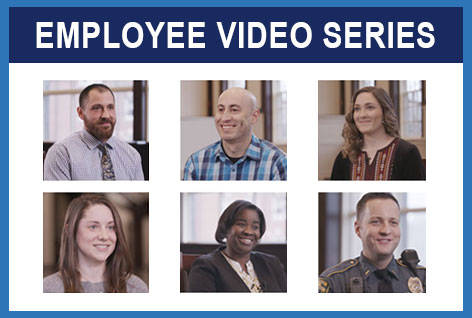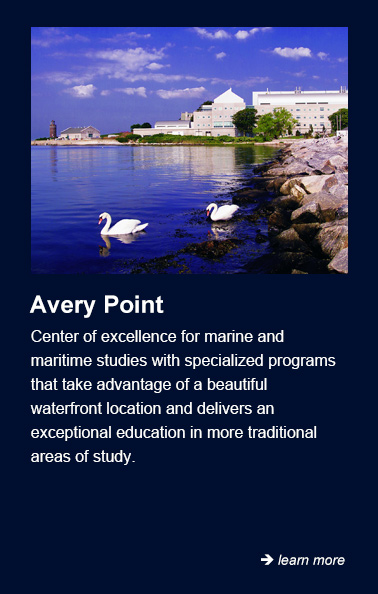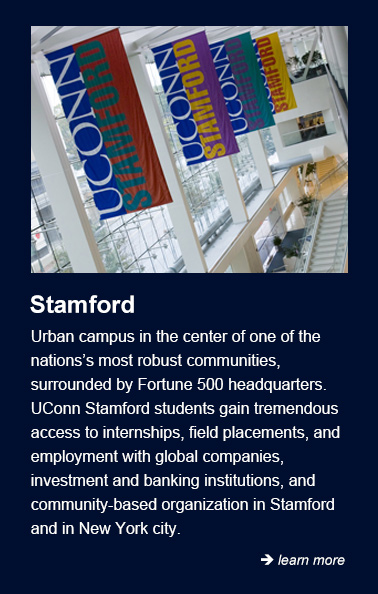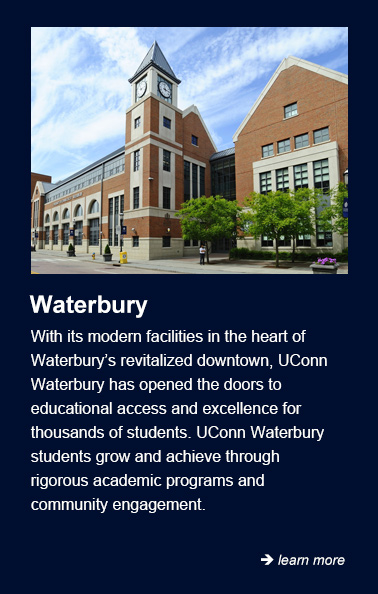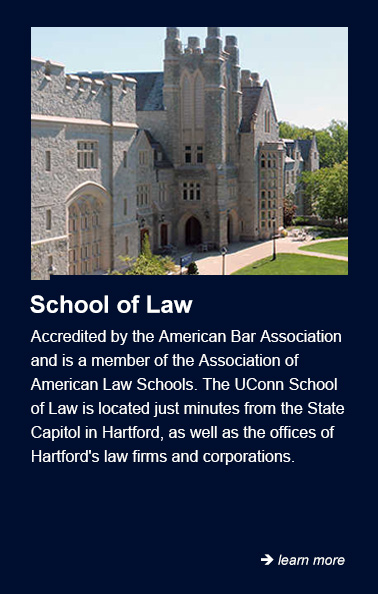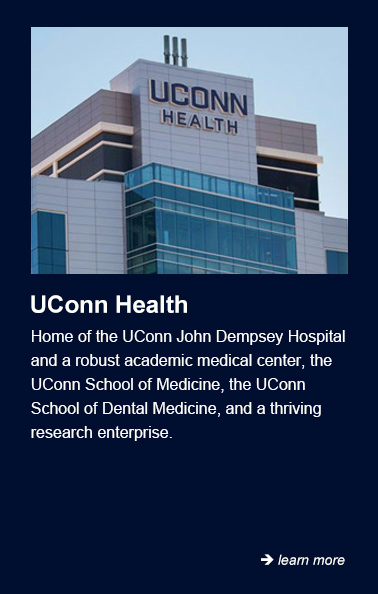
The College of Agriculture and Natural Resources serves Connecticut through a wide variety of research, outreach education, and undergraduate and graduate degree programs. As the original component of Connecticut's land-grant university, the College of Agriculture and Natural Resources has as its primary mission education based on research, conducted in laboratories and in the field, that focuses on agriculture, the environment, food, families, and quality of life.
The College provides high-quality, broad-based, relevant educational opportunities that prepare graduates to address the challenges of life today; it expands the frontiers of knowledge through research; and it enhances economic opportunities and quality of life for people of Connecticut and beyond.
The College of Agriculture, Health and Natural Resources includes the following academic departments: Agricultural and Resource Economics, Allied Health Sciences, Animal Science, College of Agriculture, Health and Natural Resources, Kinesiology, Natural Resources and the Environment, Nutritional Sciences, Pathobiology and Veterinary Science, Plant Science & Landscape Architecture, and UConn Extension.
Current Openings
Department of Agricultural and Resource Economics - Assistant Professor, Environmental and Natural Resource Economics
Department of Agricultural and Resource Economics - Assistant or Associate Professor - Agricultural Economics, Food Markets, and Agribusiness
Department of Pathobiology and Veterinary Science - Assistant or Associate Professor, One Health Approaches to Infectious Diseases
Department of Plant Science and Landscape Architecture - Assistant Professor of Controlled Environment Agriculture
UConn Extension - Assistant/Associate Extension Educator for Controlled Environment Agriculture
UConn Extension - Assistant/Associate Extension Educator for Agriculture Business Management
UConn Extension - Diversified Livestock Field Based Extension Specialist-Asst/Assoc Ext Edu
The College of Engineering offers undergraduate and graduate degrees across engineering disciplines in seven departments. The College has exceptional students, strong scholarship in terms of knowledge generation and application, and vibrant public-private partnerships with major economic impact on the state and beyond. As evident in research expenditures, scholarly publications, and leadership positions in professional societies, the College has extraordinary research strength in advanced manufacturing and materials; sustainability and resilience; energy and environment; security and infrastructure; biomedical engineering and systems genomics; complex systems engineering and big data; and high-performance computing.
The College of Engineering includes the following academic departments: Biomedical Engineering, Chemical and Biomolecular Engineering, Civil and Environmental Engineering, computer Science & Engineering, Electrical and Computer Engineering, Eversource Energy Center, Materials science and Engineering, Mechanical Engineering, School of Engineering.
Current Openings
Department of Biomedical Engineering - Professor and Department Head
Department of Civil and Environmental Engineering - Assistant or Associate Professor in Residence
Department of Computer Science and Engineering - Lecturer
Department of Computer Science and Engineering - Lecturer, Computer Science, Stamford Campus
Department of Computer Science and Engineering - Assistant Professor in Residence, Storrs
Department of Computer Science and Engineering - Assistant, Associate, or Full Professor, School of Computing
Assistant, Associate, or Full Professor, Robotics Program
Pratt & Whitney Institute for Advanced Systems Engineering - Assistant/Associate/Full Professor in Residence and Associate Director of Academic Programs
School of Mechanical, Aerospace, and Manufacturing Engineering - Assistant, Associate or Full Professor, Advanced Manufacturing
School of Mechanical, Aerospace, and Manufacturing Engineering - Assistant, Associate or Full Professor - Composites
The College of Liberal Arts and Sciences is the heart of the University of Connecticut and its home for innovative discoveries and great debates that bridge the boundaries among the sciences, social sciences and the humanities. The College comprises 25 departments and more than 50 undergraduate majors, 100 graduate programs and 800 faculty. It is also home to numerous interdisciplinary and cultural centers, institutes, and programs that generate innovative ideas and create new fields of inquiry.
The College supports a research profile of more than $40 million in annual expenditures. Among the College’s prominent research programs are its life and physical science faculty in the areas of genetics and genomics, in collaboration with the UConn Health Center and The Jackson Laboratory for Genomic Medicine facilities in Farmington. The College has been at the forefront of environmental research, teaching, and outreach, with strong expertise in the natural and social sciences as well as interdisciplinary research initiatives related to environmental sustainability, biodiversity, and global environmental change. With ongoing interdisciplinary work on cognitive and brain science among philosophers, linguists, behavioral scientists, and neurobiologists, the College has a unique capacity for understanding language and the human mind. The College is the University's home for research in the humanities, and includes highly-ranked programs in history, including early American and Latin American history; American and English literature; medieval studies, and world languages and culture. The College also supports an array of programs and institutes focusing on race, gender and transcultural studies, with a vision of studying the migration of peoples across the globe.
The College of Liberal Arts & Sciences includes the following academic departments: Anthropology, Biotechnology/Bioservices Center, Center for Judaic Studies and Contemporary Jewish Life, Chemistry, Communication, Department of Earth Sciences, Ecology and Evolutionary Biology, Economics, El Instituto: Institute of Latina/o, Caribbean, and Latin American Studies, English, Ethnic and Gender Studies, Geography, History, Human Development and Family Sciences, Journalism, Liberal Arts and Sciences, Linguistics, Literatures, Cultures, and Languages, Marine Sciences Department, Mathematics (Actuarial Lecturer), Mathematics (Visiting Assistant Professor), Molecular and Cell Biology, Philosophy, Physics, Physiology and Neurobiology, Political Science, Psychological Sciences, Psychology, Public Policy, Sociology, Speech, Language, and Hearing Sciences, Statistics, Urban and Community Studies Program, Women's, Gender, and Sexuality Studies.
Current Openings
Department of Communication - Assistant Professor in-Residence in Marketing, Advertising, and Public Relations
Department of Earth Sciences - Assistant Professor, Energy Transitions and Critical Materials
Department of Earth Sciences - Assistant, Associate, or Full Professor
Department of Earth Sciences - Visiting Assistant Professor
Department of Economics - Assistant Professor of Economics
Department of English - Assistant or Associate Professor in Native North American Literary and Cultural Studies
Department of English - Assistant Professor of Asian American Literary and Cultural Studies
Department of English - Assistant Professor in Residence
Department of Geography - Assistant Professor in Indigenous Geographies, Feminist Indigenous Studies, and Climate Justice
Department of Geography - Assistant, Associate Or Full Professor (GeoAI) In Geography (Open Rank)
Department of Human Development and Family Sciences - Instructor in Residence and Campus Coordinator of the Early Childhood Specialization
Department of Linguistics - Instructor in Residence or Assistant Professor in Residence, American Sign Language and Deaf Culture
Department of Literatures, Cultures, and Languages - Assistant Professor of Arabic
Department of Marine Sciences - Assistant Professor
Department of Mathematics - Assistant Professor
Department of Music - Assistant Professor in Residence of Percussion
Department of Physics - Assistant Professor in Experimental or Theoretical Nuclear Physics
Department of Political Science - Assistant Professor In American Politics
Department of Speech, Language, and Hearing Science - Assistant Professor, Speech Language Pathology
Department of Statistics - Assistant Professor, Statistics
School of Public Policy - Assistant Research Professor
The Neag School of Education stands out as a major contributor to instructional and research excellence at the University of Connecticut, one of the nation’s leading public higher education institutions. With academic departments dedicated to educational leadership, educational psychology, and curriculum and instruction, the Neag School offers programs in such areas as school psychology; sport management; higher education and student affairs; counseling; and teacher and administrator preparation. According to the 2023 U.S. News & World Report rankings, the Neag School ranks among the top 20 public graduate schools of education in the nation, at No. 17. In addition, its Special Education program is tied at No. 17 nationally.
Neag School of Education includes the following academic departments: Curriculum and Instruction, Educational Leadership, Educational Psychology, and Neag School of Education.
Current Openings
Department of Educational Leadership - Assistant Professor In Residence
Department of Educational Curriculum and Instruction - Assistant/Associate Clinical Professor
Faculty in the UConn School of Business are committed to engaging in and publishing top-tier research, quality teaching aimed at transforming the lives of our students, and playing a pivotal role in the economic engine of our state. Our mission includes educating the next generation of business professionals, discovering the next generation of business insights, attracting the next generation of business talent, and supporting the next generation of Connecticut businesses. We are deeply committed to diversity, equity and inclusion and provide strong opportunities and programs for women in business.
Faculty scholars at the School of Business are shaping the fields and disciplines in which they work, particularly in the areas of creativity, teams, entrepreneurship, cross-functional analytics, and real estate, where we are ranked among the Top 3 programs globally. Professors are also engaged in relevant, ground-breaking research within our accounting, finance, management, marketing, and operations & information management departments. Our robust PhD program encourages and fosters a rich, research-oriented environment, preparing students for careers at R1 universities.
The School of Business includes the following academic departments: Accounting, Finance, Healthcare Management & Insurance Studies, Management Department, Marketing, Operations & Information Management Department, and School of Business.
Current Openings
There are currently no open positions. Please check back.
The School of Fine Arts includes the following academic departments: Art and Art History, Digital Media & Design, Dramatic Arts, and Music.
UConn School of Law is the top-ranked public law school in the Northeast, offering a professional education of the highest quality. Its Gothic Revival campus is located in the West End of Hartford, a few miles from the state Capitol and courts, as well as the headquarters of leading insurance companies and other major corporations. The school has day and evening divisions, and offers the JD (juris doctor), LLM (master of laws) and SJD (doctor of laws) degrees, as well as several dual degrees.
The UConn Law faculty includes leading scholars, experienced practitioners and internationally known experts in a wide range of fields. The school also draws dozens of adjunct faculty members from the judiciary, area corporations and private practice. A pioneer in the introduction of practical training to legal education, UConn Law has more than a dozen clinics, including an Asylum and Human Rights Clinic, Criminal Defense Clinic, and Intellectual Property and Entrepreneurship Law Clinic.
Current Openings
Director Of Legal Practice (Professor of Law or Clinical Professor of Law)
Associate Professor/Professor of Law
Assistant Clinical Professor of Law – Legal Practice
Visiting Instructor of Law (Teaching Fellow) – Animal Law Clinic
The School of Nursing offers prelicensure and graduate programs with many advanced practice nursing specialties at the master's and doctoral levels. The School is ranked among the top 30 nursing master’s programs in the country and the top 5 in New England. It is the largest provider of nurses and nursing faculty in Connecticut and is highly regarded for its focus on health care innovation. Research expertise in the School has a long-standing and international reputation in maternal-infant health, including postpartum mood and anxiety disorders and high-risk infant development, as well as pain management. Gerontology and aging research, particularly with vulnerable populations, is another area of strength. The School is known for its clinical partner collaborative relationships, where faculty hold joint appointments designed to enhance patient care and health outcomes.
Current Openings
Assistant/Associate/Full Professor
Associate Dean for Faculty Affairs
Assistant/Associate/Full Clinical Professor (Non-Tenure Track) – Nurse Educator
Clinical Instructors
Director of Pre-Licensure Programs - Assistant/Associate/Full Clinical Professor
The UConn School of Pharmacy is accredited by the Accreditation Council for Pharmacy Education (ACPE) and offers educational and experiential programming in pharmacy practice and pharmaceutical sciences (medicinal chemistry, pharmaceutics, and pharmacology and toxicology). Degrees offered include: B.S. in Pharmacy Studies, Doctor of Pharmacy (Pharm.D.) and, M.S. and Ph.D.in pharmaceutical sciences. The School also directs an extensive pharmacist continuing education and professional development program. Pharmaceutical Sciences faculty research includes foci in drug design and discovery, drug metabolism and metabolomics, behavioral and molecular pharmacology, mechanistic toxicology, nanomedicine and drug delivery, epigenetics and noncoding RNA, pharmaceutical technology and manufacturing. Pharmacy Practice researcher foci include health outcomes, medication effectiveness, safety, and care effectiveness. The School was awarded the American Association of Colleges of Pharmacy's (AACP) Lawrence C. Weaver Transformative Community Service Award in 2021.
Current Openings
The School of Social Work is the only one in the state to offer the BSW, MSW and PhD programs. The school has a strong orientation to social justice and offers concentrations at the masters level in Community Organizing, Individual Group and Family Practice and Policy Practice. Our growing faculty are nationally and internationally known for their work in international social work and human rights; mental health, trauma and violence prevention and reduction; social and health disparities, community organizing, child well-being and policy analysis and advocacy. The Nancy A. Humphreys Institute for Political Social Work is a national leader in research, training and voter engagement. We have robust training and research partnerships with the CT State Departments of Children and Families; Mental Health and Addiction Services; and Social Services.
Current Openings
There are currently no open positions. Please check back.
Interdisciplinary Centers, Institutes, and Programs include the following academic departments: Center for Excellence in Teaching and Learning, Center for Open Research Resources & Equipment (COR2E), CT State Museum of Natural History, Global Affairs, Humanities Institute, Human Rights Institute, Institute for Collaboration on Health, Intervention, and Policy (InCHIP), Institute for Materials Science, Institute for Systems Genomics, National Estuarine Research Reserve (CT NERR), UConn Tech Park, UTC Institute for Advanced Systems Engineering.
Current Openings
Center for Clean Energy Engineering (C2E2) - Assistant Research Professor
Institute for Collaboration on Health, Intervention, and Policy (InCHIP) - Associate or Full Professor of Advanced Methodology
CLERY COMPLIANCE STATEMENT
The Jeanne Clery Disclosure of Campus Security Policy and Campus Crime Statistics Act (Clery Act)
The University of Connecticut Police Department invites all prospective University employees, current employees and students to read the Annual Security and Fire Safety Report and the compilation of criminal incidents charged or alleged on campus grounds “crime log”. These reports are prepared in cooperation with many departments throughout the university along with local law enforcement agencies. These entities provide updated information on their educational efforts and programs to comply with the Clery Act. Written copies of the report may be requested from the UConn Police Department. Visit clery.uconn.edu for additional information.
NON-DISCRIMINATION POLICY
Commitment to Diversity, Inclusion and a Respectful Workplace
UConn is committed to providing equal employment opportunities to all its employees and applicants for employment. All applicants will receive consideration for employment without regard to race, color, ethnicity, religious creed, age, sex, marital status, national origin, ancestry, sexual orientation, genetic information, physical or mental disabilities (including learning disabilities, intellectual disabilities, past/present history of a mental disorder), prior conviction of a crime (or similar characteristic), workplace hazards to reproductive systems, gender identity or expression, or other factors which cannot lawfully be the basis for employment actions.
Accommodations for Applicants with Disabilities
Applicants with disabilities may request reasonable accommodations under the American with Disabilities Act (ADA). Accommodations are available to help applicants complete application materials and also during the interview and hiring process itself. The University engages in an interactive process with each person making a request for accommodations and reviews the requests on an individualized, case-by-case basis. Please contact ADA Case Manager at 860-486-2036 or via e-mail at Ryan Bangham to request an accommodation.
Recruiting Veterans
UConn respects the commitment of applicants and employees who have served in the armed forces and values their skills and abilities. The University has dedicated efforts to actively recruit, employ and support veterans as members of the UConn community. The University of Connecticut is committed to the recruitment of veterans for employment and promotion throughout the University and ensures accommodation for veterans with disabilities.
For questions related to the University’s non-discrimination policies, please contact: the Department of Human Resources at 860-486-3034 or via e-mail at hr@uconn.edu or the Office of Veteran Affairs and Military Programs at 860-486-2442 or via e-mail at veterans@uconn.edu.
AMERICANS WITH DISABILITIES ACT COMPLIANCE & ACCOMMODATIONS
The Department of Human Resources Americans with Disabilities Act (ADA) Accommodations Case Manager is charged with processing and facilitating requests for employee ADA accommodations. If you believe you may need an accommodation, or if you are a supervisor or manager who has been presented with a request for an accommodation, please contact the ADA Case Manager, Ryan Bangham, and/or visit our page on Employee Accommodations. See the guide to HR’s Reasonable Accommodations Process. Students who require an accommodation in the academic setting should contact the Center for Students with Disabilities. Please feel free to contact the ADA Case Manager at (860) 486-2036 or via e-mail at ryan.bangham@uconn.edu for further assistance.
When in doubt, please do not hesitate to contact the ADA Case Manager for advice.
Ryan Bangham
ADA Case Manager
(860) 486-2036
Download a PDF copy of:
Policy Statement: People with Disabilities
Request for Reasonable Accommodations Form
Release of Medical Information Form
Important Changes to the ADA
ADA Accommodations Process Flowchart
University of Connecticut Committee on Access and Accommodations
The University of Connecticut is committed to providing equal educational and employment opportunities and achieving full participation for all members of the University community, including persons with disabilities. The University of Connecticut Committee on Access and Accommodations will focus on assuring that the University as a whole is positioned to meet this goal, including regional campuses, the School of Law, and the School of Social Work. The Committee’s primary focus is to promote ongoing assessment and awareness of goals, needs, and requirements related to access and accommodations at the University. It will consider a range of compliance issues with the Americans with Disabilities Act (ADA) and its amendments and other legislation related to disabilities and accommodations. It serves to facilitate coordination across all of the units and offices that have a role in assuring appropriate access and accommodation in University services and activities. The Committee also serves to continuously improve the University’s efforts to ensure equal access and provide reasonable accommodations to persons with disabilities by identifying best practices and developing approaches to implement them, and devising and facilitating solutions to problems.
Discrimination Complaint Procedures
ODE encourages all members of the University community to partner in ensuring an environment free of discrimination at all University-related activities and in the working and learning environment. The University forbids all forms of disability discrimination, including the failure to provide reasonable accommodations and discrimination or harassment based on physical or mental disabilities. To that end, incidents of discrimination or discriminatory harassment (including disability discrimination, and failure to provide a reasonable accommodation) by University employees should be reported to ODE at (860) 486-2943 or via e-mail at ODE@uconn.edu. To facilitate the internal resolution of complaints, ODE encourages persons needing to file a complaint to complete a Discrimination and/or Discriminatory Harassment Complaint Form as soon as possible. For information regarding the discrimination complaint process, please review ODE’s complaint procedures and flow chart regarding its process. Additionally information about reporting complaints of discrimination and/or discriminatory harassment can be obtained by calling a member of ODE at (860) 486-2943 or by contacting the University’s ADA Coordinator:
Sarah Chipman
ADA Coordinator, Associate Vice President
Office of Diversity and Equity (ODE)
241 Glenbrook Rd., Unit 4175
Storrs, CT 06269
Tel: (860) 486-8709
Website: www.ode.uconn.edu
Civil Rights Enforcement Agencies
The U.S. Department of Education, Office for Civil Rights (OCR) enforces several Federal civil rights laws that prohibit discrimination in programs or activities that receive financial assistance from the U.S. Department of Education. OCR is also responsible for Title II of the Americans with Disabilities Act (ADA) of 1990 which prohibits disability discrimination by all public entities.
The Equal Employment Opportunity Commission (EEOC) enforces Federal laws prohibiting discrimination in employment on the basis of race, color, sex, pregnancy, genetic information, religion, national origin, age, or disability, as well as retaliation protections for persons complaining of discrimination or participating in the investigation of discriminatory activity. These laws prohibit discrimination in the job application and hiring process, and in the context of terminations, promotions, trainings, wages, or any other terms, privileges or conditions of employment.
The Connecticut Commission on Human Rights and Opportunities (CHRO) enforces state laws prohibiting discrimination in employment, housing, public accommodations, and credit transactions. The mission of the CHRO is to eliminate discrimination through the enforcement of civil and human rights laws and to further the goals of equal opportunity and justice for all persons within the state through advocacy and education. Connecticut law provides protections against discrimination on the basis of age, ancestry, color, race, criminal record, genetic information, disability, national origin, religion, sex, pregnancy, sexual orientation, gender identity or expression, or workplace hazards to reproductive systems, as well as retaliation protections for whistleblowers and persons complaining of discrimination or participating in the investigation of discriminatory activity.
The U.S. Department of Labor administers a variety of federal labor laws including those that guarantee workers’ rights to safe and healthful working conditions, a minimum hourly wage, and overtime pay. The Department of Labor is also responsible for enforcing comprehensive federal labor laws in areas such as record keeping, youth and special employment, family and medical leave, migrant workers, lie detector tests, protections in certain temporary worker programs, and the prevailing wages for government service and construction contracts. The Connecticut Department of Labor is responsible for a number of state labor programs, including unemployment insurance, wage and workplace standards, and the Connecticut Family and Medical Leave Act.
For more information about other entities that enforce state and federal non-discrimination laws, please go to the Connecticut Commission on Human Rights and Opportunities, the U.S. Department of Justice or to the U.S. Commission on Civil Rights.


